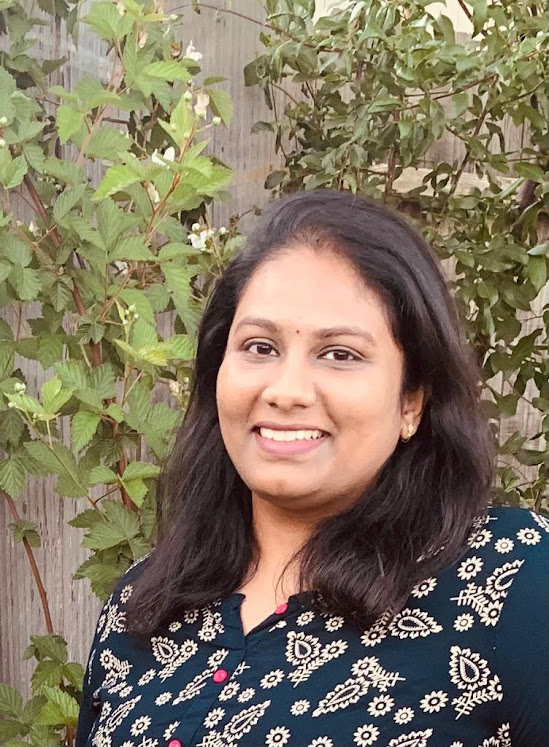Alumni Spotlight: Courtney Chinn
 |
| Figure 1. Courtney Chinn merges innovation with collaboration to achieve sustainable outcomes. |
Written by Arnel Garcesa
Working to permeate sustainable philosophies is a multidisciplinary endeavor requiring interdisciplinary cooperation. PCGS Alum Courtney Chinn catalyzes a collaboration of ideas and practices to accelerate achievements of efficient energy management in her current role as a Consultant for Booz Allen Hamilton. The journey to her current role has revolved around unifying the interaction of people with living in greater harmony with the natural world.
Growing up, Courtney recalls experiences which entrenched her appreciation for nature. “My dad is a biologist, and we would often walk on nature trails. I gained empathy for the natural world and sought to uphold care for the environment.” Courtney’s admiration continued while volunteering for the Florida Aquarium and attending high school. “I was able to educate visitors about the species with whom we share this world. My goal was to influence guests, and if I could encourage one person to protect the environment, my time would be worth it.”
Courtney continued into college by attending the University of Florida and majoring in Sustainability Studies. She participated in a wide range of opportunities and learned the breadth of sustainability’s impact in domains beyond the environment. After graduating, Courtney chose PCGS seeking to narrow her focus upon one aspect of sustainability – energy. “I wanted to gain a greater technical education within sustainability. I sought to narrow my focus and learn about the range of alternative energy sources.” Courtney concentrated in Sustainable Energy, a realm that would soon garner greater opportunity for her.
After graduating from PCGS in 2017, Courtney served as a Sustainability Associate at the National Housing Trust. Her team’s goal was to preserve and create affordable housing stock in the Washington D.C. area. “We sought to reduce utility costs by installing water and energy efficiency measures such as smart thermostats and LED bulbs. Beyond the technical improvements, I appreciated the opportunity to impact the entire life-cycle and reduce costs. Once these tools were in place, we tracked the energy and financial savings on a dashboard.” Underlying the potential savings was the principle that residents needed to practice beneficial behaviors. “I enjoyed engaging with residents and teaching them why energy efficiency matters to them. We wanted to work together and reach a happy medium – energy is saved and residents are comfortable.” The social connection with residents particularly impacted Courtney’s time. “Hearing residents ask us to come out more often and put our face to the name was very rewarding. We were delighted to make residents have greater pride in their residences.”
The National Housing Trust used the Lucid system to track building and energy use of its properties. Courtney was well-versed with the system and began serving as a Utilities Outreach Program Leader for American University which also used Lucid to monitor campus utility expenditures. In 2018, the school was the first in the United States to become carbon neutral, and Courtney had an opportunity to advance the university’s legacy. She monitored and analyzed data to track the performance of buildings on American’s campus identifying model exemplars and flagging opportunities for improvement. Complementing her analysis, Courtney fostered understanding and promotion of the university’s initiatives and accomplishments among departments and individuals. “With our outreach, I was able to work with many partners to find connections and collaboration in implementing our programs. There are a host of stakeholders with whom we needed to communicate to continue momentum and prevent obstacles.” These initiatives spanned the university community. “We ensured efficient management of building controls would not interfere with work being conducted in office settings. For students living in residence halls, we examined heat maps and found a majority of students would be practicing the initiatives we encouraged.” The success was guided by prioritizing communication and ensuring all parties were satisfied. “We facilitated input and ensured the programs and initiatives we managed worked with those whom we were speaking.”
Currently, Courtney serves Booz Allen Hamilton as a Consultant for United States Air Force on a multidisciplinary team working on several projects to improve energy resilience. In her current role, communication is once again a top priority. “The team I work with has several capabilities and talents, but we all collaborate and coordinate around the goal of finding opportunities to increase efficiency and accomplish our projects. Externally, we do the same with our client. Is there a gap we can address, and if so how would it be executed? Or what project has the client identified and how do we accomplish it? Ultimately, we have to assess the client’s needs and find a feasible path to improvement.” Inherent with the collaboration comes exposure to various strategies and technologies. “We can propose simple strategies such as planting trees to save energy during the winter or implementing emerging renewable energy technologies to provide projected energy needs against the anticipated effects of climate change. With multiple projects to work on, innovative solutions require innovative ideas from a collaborative team.” It is this collaboration towards achieving a goal for a common, better future that drives Courtney’s success in advancing more sustainable outcomes.
The PCGS Alumni Network's regular series aims to share the tremendous work our Alumni are doing. If you or someone you know would like to be included in our spotlight, please email pcgsnetwork@gmail.com to get in touch.

Comments
Post a Comment